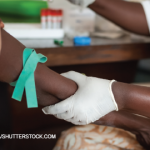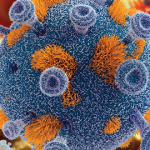
Catarina Williams / shutterstock.com
CHICAGO—Rheumatology physicians and researchers from Africa said the field’s resources and medical literature on the continent are slowly expanding, but they repeatedly lamented that the millions who suffer from rheumatic diseases there have major obstacles to overcome to access care.
Their reviews and assessments—sometimes grim and sometimes hopeful—came in a session that was a joint endeavor with the African League of Associations for Rheumatology (AFLAR) at the 2018 ACR/ARHP Annual Meeting.
Gout on the Rise
Omondi Oyoo, MD, associate professor of clinical medicine and therapeutics at the University of Nairobi, Kenya, said the prevalence of gout—a disease once considered unthinkable in Africa because the lifestyle there seemed incompatible with it—is on the rise in sub-Saharan Africa, even though studies on the disease characteristics involve small groups of patients (all the studies he cited included fewer than 200 patients).
The literature that does exist has found a long time lapses from onset to diagnosis, about three to four years. Cases in which diagnosis is delayed often come with complications, including tophi and polyarticular disease, Dr. Oyoo said.
Studies have identified obesity and hypertension as the main risk factors, followed by alcohol use and diabetes.
Dr. Oyoo said the surge in gout could be due to departures from traditional lifestyle, an increase in sedentary white-collar jobs, changes in diet due to improving socioeconomic status and better recognition of the disease because of improved training and facilities.
“Rising numbers of obesity, hypertension, diabetes, dyslipidemia and chronic kidney disease have played a role in the increased numbers of patients,” Dr. Oyoo said.
He said wider adoption of a treat-to-target approach for urate-lowering therapy, multidisciplinary patient management, more education of patients and the public, and management guidelines tailored to middle- and low-income countries would help lead to better outcomes.
RA & HIV
Girish Mody, MBChB, MD, professor of rheumatology at the University of KwaZula-Natal in South Africa, described the interaction between arthritis and HIV, which affects 25.7 million people in Africa, accounting for about 70% of the world’s cases.
With HIV infection, traditional markers and treatment sometimes must be viewed in a different light, studies suggest. A 2014 study of 1,700 patients, 85 of whom were HIV positive, found that both the rheumatoid arthritis (RA) only patients and those with HIV-RA showed similar improvement in joint count and C-reactive protein, even though methotrexate had been stopped in most of the HIV-RA patients.1 The erythrocyte sedimentation rate remained elevated and was less reliable as a marker of disease activity, Dr. Mody said.
A 2011 study found that anti-citrullinated protein antibodies demonstrated a lack of specificity in those with advanced HIV infection, appearing in higher levels among those with HIV but without arthritis, compared to healthy controls.2
And in a 2015 review, the authors concluded that RA-like arthritis in those with HIV/AIDS is rare, so HIV infection shouldn’t routinely be considered as a differential diagnosis in this setting. They also said RA can cause false-positive HIV serology and that an enzyme linked immunosorbent assay (ELISA) seems to be a more specific test for HIV in these cases.3
Nevertheless, Dr. Mody said, patients on antiretroviral therapy do develop inflammatory arthritis, and many needs for these patients, including diagnostic challenges and the efficacy and safety of disease-
modifying anti-rheumatic drugs and other immunosuppressive therapy, remain unmet.
There is also the question of whether an HIV-associated arthritis exists in the era of antiretroviral therapy, and whether differences manifest in the expression of disease in these patients, Dr. Mody said.


